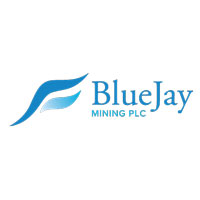FinnAust Mining plc ORD 0.01p (LON:FAM) Managing Director Roderick Mcillree talks to DirectorsTalk about the successful second stage metallurgical testwork completion and how this ties in with previous announcements. Rod also explains the metallurgy and what shareholders should expect to see over the coming months.
FinnAust Mining has a number of highly prospective licences at various stages of development in Greenland and Finland. The Company is dual listed on the London AIM market and Frankfurt Stock Exchange. The Company is currently focussed on advancing the Pituffik Project in Greenland, an area that has only recently revealed its mineral potential following changes in the climate. Pituffik, which FinnAust conditionally acquired in December 2015, has demonstrated the potential to be in the top percentile of projects worldwide in terms of heavy mineral grade.
Pituffik comprises three main target areas along an >80km coastline historically proven to contain large and high-grade accumulations of primary ilmenite occurring as placer deposits in the following environments:
· Raised beaches; containing ilmenite accumulations over widths of more than 1km, of unknown depths, along more than 20km of coastline;
· Active beaches; which refer to the area seaward of the frontal dunes, including the beach, tidal zones and surf zone – historically samples from this area have achieved 70% ilmenite by weight; and
· Drowned beaches; refers to the areas seaward of active beaches.
The Company’s strategy is focused on the production of a bulk sample “proof of concept” from the Pituffik Project in 2017 with the aim of ultimately generating cash flow to create a company capable of self-funding exploration on future acquisitions.
FinnAust Mining plc ORD 0.01p has an interest in 60% of Bluejay Mining Limited the holder of the Pituffik exploration licence and has an option to acquire the remaining 40%. The company also holds a 100% interest in a portfolio of copper, zinc and nickel projects in Finland. This multi-commodity portfolio remains a strategic asset of importance and has been restructured to be cost-sustainable whilst determining the best plan for future development.


